Here’s a quick question for you:
Are you the kind of person who tends to run away from relationships with others, get overly invested in them, or a little bit of both? Perhaps you generally feel fine in relationships?
Your answer to this simple question reveals what type of attachment style you have.

Soul Work Compass Course:
Is a vague sense of emptiness lurking beneath the surface? It’s time to reclaim your life. The Soul Work Compass Course helps you break free from self-doubt and repetitive pain. Don’t just survive – thrive by creating a personalized map for your future. Start your journey to profound self-discovery and authentic life direction now.
In psychology, an attachment style is a pattern of behavior that we develop in response to the relationship we have with our primary caregivers. There are four types: secure, anxious, avoidant, and disorganized.
If you tend to isolate or distance yourself from others, you likely have an avoidant attachment style. On the other hand, if you tend to fear abandonment and need intense closeness, you likely have an anxious attachment style.
If you have a mixture of these two types, you have a disorganized attachment style. And if you feel generally grounded and relaxed in your relationships, congratulations, you have a secure attachment style.
These are broad, sweeping statements, I know. Attachment styles are much more complex than I make them out to be (for instance, we all have a little bit of each type, to varying degrees).
So why am I bringing this topic up?
The reality is that, unless we live on a totally isolated island in the middle of the ocean, relating to other people is a major part of daily life. It is the fabric that tends to bind our days together.
And as a species wired to be social, our connections with others often form our very best and worst experiences in life.
Want to get LonerWolf at the top of your Google search results?
Not only that, but there is a spiritual element to attachment styles. Your attachment style (secure, anxious, avoidant, or disorganized) also directly influences your connection with your Soul, Higher Self, Source, Spirit, or whatever you call the Divine.
If you have any one of the three insecure attachment styles – whether that be avoidant, anxious, or disorganized – you have wounding and trauma surrounding connection.
In this post, I’m going to share a few thoughts on the overlap between your attachment style and your spiritual path, as well as how to find a way back to building a ‘secure base’ with others and Life.
Table of contents
The Four Attachment Styles – Which One Are You?
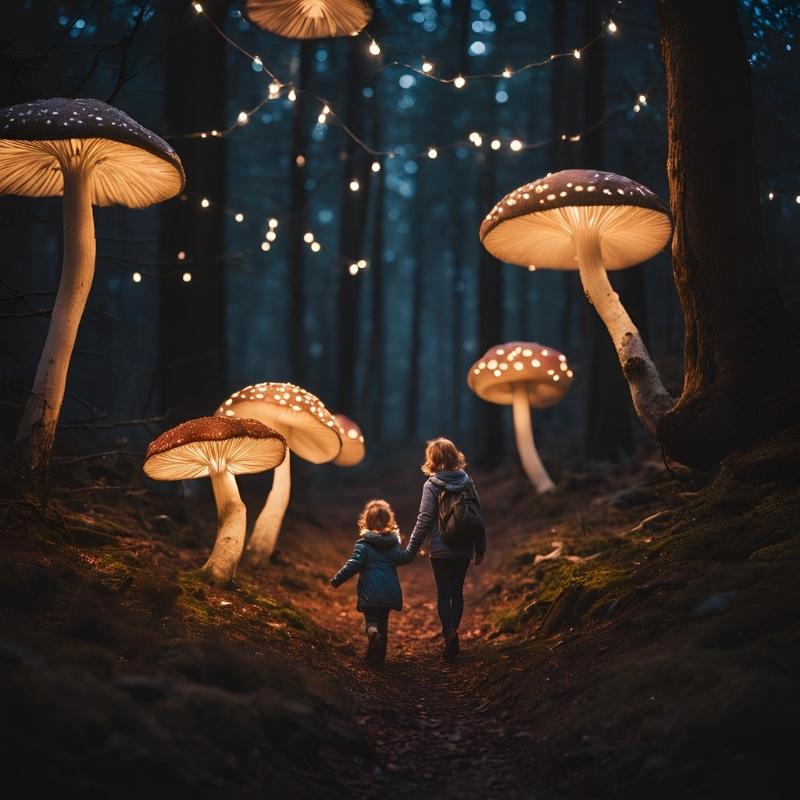
The theory of attachment styles was first developed by psychoanalyst and psychiatrist John Bowlby back in the 1950s and 1960s.
It was later expanded upon by developmental psychologist Mary Ainsworth, who explored how important it was for us to develop a “secure base” with our primary caregivers as children.
If we were never provided a secure base – that is, a parental figure who was sensitive to our needs, attentive, loving, and provided us with a safe haven – then we developed one of the following attachment styles:
Anxious Attachment
Also known as Anxious-Ambivalent or Anxious-Preoccupied. Characterized by:
- Fearing abandonment
- People-pleasing tendencies
- Low self-esteem
- Struggling to trust others
- Clinginess/codependency in relationships
- Scared of rejection of any kind
- Difficulty being alone
- Jealous tendencies
- Feeling unworthy of love
Avoidant Attachment
Characterized by:
- Difficulty trusting others
- Feeling threatened by closeness
- Struggling to express emotions
- Avoiding mental/emotional intimacy
- Seeking out solitude to the extreme
- Extremely independent and individualistic
- Dismissing others’ strong feelings
- Fearing commitment
Disorganized Attachment
Characterized by a blend of anxious and avoidant attachment style traits, such as:
- Wanting closeness but fearing it (playing “push and pull” games)
- Self-isolating tendencies
- Difficulty regulating emotions
- “Trust issues”
- Anxiety surrounding commitment
- Unpredictable behavior
- Going to extremes: aloofness, then clinginess
- Poor communication skills
- Negative view themselves and others
Which one of the above do you relate to the most?
Would you like to save this?
Your information will never be shared.
If you’d like a place to work through some of the above issues, see our LonerWolf Supporter membership offering. It offers a secure external base if you’re a spiritual seeker needing ongoing support, run by two earned, securely attached guides (Mateo and myself).
If you were raised by physically, mentally, and emotionally attentive caregivers, you would have likely developed a secure attachment style that is defined by the following:
Secure Attachment Style
Characterized by:
- Comfortable being alone and with others
- Able to trust others easily
- Healthy self-esteem
- Ability to regulate emotions
- Handles conflict well
- Emotionally available
- Good communication skills
- Does well in close relationships
The Overlap Between Spirituality and Attachment Style
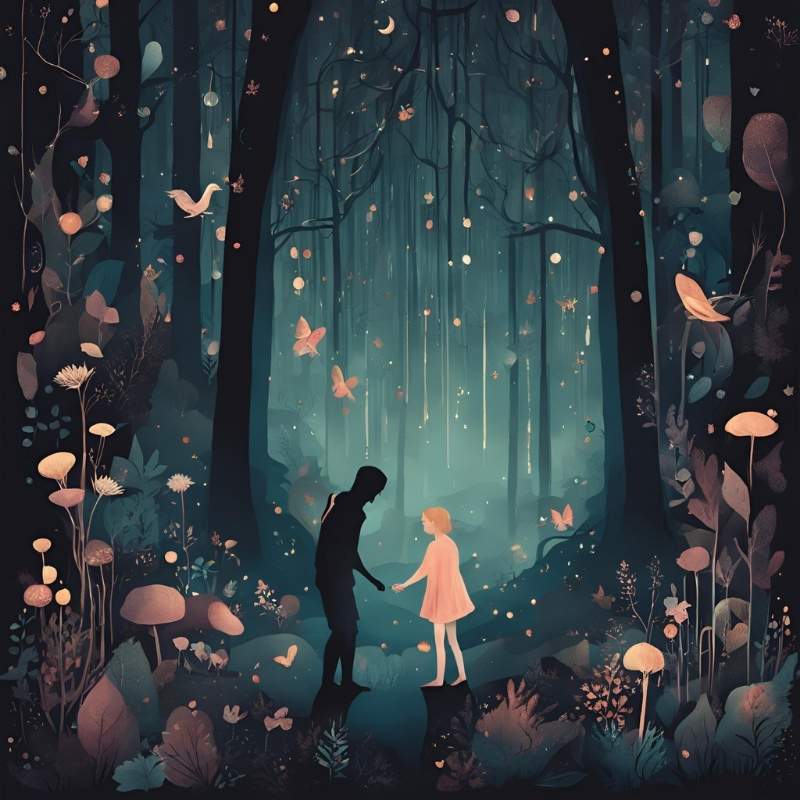
“Attachment is a unifying principle that reaches from the biological depths of our being to its furthest spiritual reaches.” – Jeremy Holmes
The attachment style you develop is reflected in every single one of your relationships, including your relationship with Soul and Spirit. Why wouldn’t it?
Suppose you were raised with neglectful caregivers and developed an avoidant attachment style that encouraged you to be overly self-reliant and individualistic (as a form of self-protection). Why wouldn’t that way of relating also influence your spiritual connection?
If you were raised with emotionally inconsistent caretakers and developed an anxious attachment style, why wouldn’t that way of relating also distort your relationship with your spiritual path?
Right now, you might be curious how your attachment style impacts your spiritual journey. Here is a quick and basic breakdown:
Anxious Attachment & Spirituality
- Desperately seeks a spiritual connection to fulfill every need
- Feels easily abandoned by the Divine/Life/God
- Tendency towards fundamentalism and finding the “one true answer/path”
- Worries about becoming distant or separated from one’s spiritual teacher, guru, or spiritual calling
- Finds a sense of self-identity in the spiritual quest or a spiritual group
- Prone to experiencing spiritual fundamentalism and spiritual abuse
Avoidant Attachment & Spirituality
- Feels threatened by spiritual processes, paths, and topics
- Tends to be cynical and mistrusting
- Once they embrace spirituality, adopts a “left-brain” approach of trying to understand, study, and know all there is to know about the Divine/Life/God
- Avoids emotional openness and availability
- Difficulty connecting to the Divine on a deeper level
- Prefers doing rather than feeling or being
- Scared of losing a sense of individuality and autonomy (aka., “being trapped”)
Disorganized Attachment & Spirituality
- Craves for spiritual connection but fears and avoids it due to trust issues
- Fear of spiritual abandonment
- Believes that they’re not “good enough” to experience a true spiritual connection
- Has a hard time accepting or asking for help from spiritual teachers and guides
- Struggles to commit to one path and jumps around as a “spiritual tourist” without ever going that deep
- Adopt a “push and pull” connection with their spirituality, wanting it at some points and rejecting it at other points
Secure Attachment & Spirituality
- Feels a sense of trust and openness towards Divine/Life/God
- Has a high level of spiritual discernment (less prone to spiritual abuse)
- Able to seek out and give spiritual support
- Develops a consistent spiritual practice maintained each day
- Feels secure in and out of spiritual communities
- Has a “secure base,” knowing they are loved by Divine/Life/God no matter what
- Trusts in the wisdom of higher powers
- Are open to growing/changing their spiritual perspectives and views
- Becomes more deeply resilient as a result of their spiritual practice/path
How to Develop a Secure Base (3 Ways)
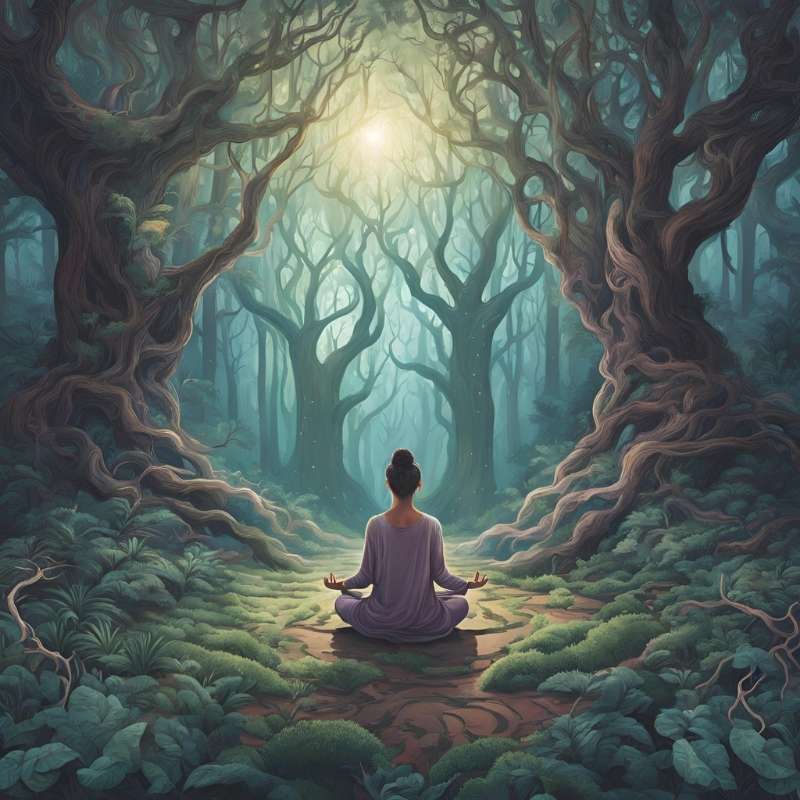
“Life is best organized as a series of daring ventures from a secure base.” – John Bowlby
I took an attachment style test the other day (I wish I remembered where), and to my surprise, I saw that I ranked as primarily secure attachment style, followed by avoidant, and then disorganized and anxious.
If I were to take that same test maybe five or more years ago, I’m sure I would have been primarily avoidant. But through time, the establishment of a healthy relationship, and a lot of inner work, I’ve achieved something known as earned secure attachment.
Earned secure attachment is what happens when you start life with one of the insecure attachment styles (anxious, avoidant, or disorganized). But through embarking on a journey of mental, emotional, and spiritual healing, you eventually learn how to develop an inner secure base.
In attachment theory, a ‘secure base’ initially refers to a person, in this case, the main caregiver that we had as a child. This caregiver is meant to provide a safe and secure environment on an outer and inner level. If they do this successfully, they create a ‘secure base’ for us.
But developing a secure base as an insecure adult isn’t about regressing to childhood and trying to get our caregivers to fulfill our unmet needs.
Instead, it’s about developing a secure base through our relationships with other secure individuals and within the context of our spiritual path.
Here are some ideas to help you learn how to develop a secure base, which have all helped me through the years:
1. Find a secure person to connect with and be aware of your current attachments

Read the signs of someone with a secure attachment style above and burn them into your brain. Be on the lookout for these types of people. More easily, you can find secure attachments often in the form of therapists, coaches, and spiritual guides (we offer a great space for that here).
For over a decade, we've strived to make this website a haven of free, valuable information. Imagine a world where this knowledge wasn't readily available. If this post sparked a meaningful insight or helped you in any way, please consider a donation as a heartfelt "thank you" for keeping this resource free. Every contribution, big or small, allows us to keep giving back.
If finding a secure partner or friendship is not in the cards, connecting with these types of professionals can be extremely beneficial. Sometimes, our pets can even be sources of secure attachment (provided that they’re not aloof or clingy).
Also, be aware of your current attachments. Who do you connect with regularly? What type of attachment style exists between you and the other person?
Think about what boundaries you need to set internally and externally. Boundaries give you a breathing space to listen to your needs and honor them.
2. Take time each day to connect with the ‘heart’ of awareness

Beneath the clutter and noise of the mind is a space of pure awareness.
Some call this space Consciousness, Luminous Presence, the Sky of Awareness, Spirit, Source, Soul, the Shimmering Void, and the Divine heart. Find your own name for it through a practice like meditation.
I find that imagery helps me to connect with this pure space – this safe and secure base that is ever-present and always there for us.
Try any of the following imagery:
- See yourself as the sky and your thoughts as clouds
- Visualize the awareness within you as a shimmering night sky
- Sense this space within you as a ‘backdrop’ to everything happening in the forefront of your mind
- Notice the open space of awareness behind your eyes and proceeding thought
The more you return to this primordial secure base, the more grounded and at home you will feel within yourself and your life.
3. Connect with your Divine Inner Parent
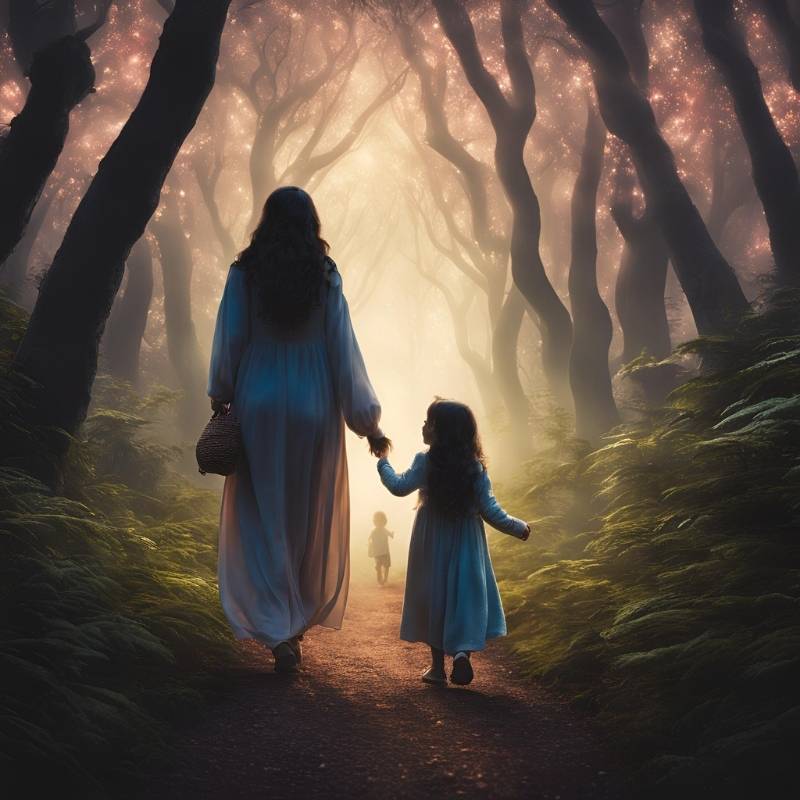
The Divine Inner Parent is an aspect of your Soul – an archetypal force within you that is an expression of your heart’s presence.
Your Divine Inner Parent could be a mother or father figure or perhaps a gender-neutral ‘parent’ who loves, delights in, and cherishes you.
This practice overlaps with inner child work, and I find that it has been one of the most powerful ways I’ve learned to develop a secure base in my entire journey.
Journal, practice mirror work, and meditate with this figure on a regular basis.
I also recommend that you find a role model or image of a Divine Parent that speaks to you deeply that you can use as a spiritual guide and ally.
For me, that was the Divine Mother in the form of Tara, Quan Yin, and Mother Mary. Find whatever imagery appeals most to you.
***
If you have a connection wound, you were raised with caregivers who were inconsistent, neglectful, or unsafe in some way.
Learning about your attachment style not only helps you to find more balance in your relationships, but it also helps you to develop a healthier, more fulfilling connection with Soul and Spirit.
Tell me, what is your attachment style? How does it impact your connections with others and your spiritual path as a whole? I’d love to hear from you below.
Two paths to inner transformation – here’s how I can help you go deeper:
1. The Soul Work Compass Course: Feeling lost or stuck in repetitive cycles of pain? The Soul Work Compass Course is your guide to reclaiming your true purpose. In this deep yet practical journey, you’ll learn how to heal core wounds and create a tangible "Soul's Compass" to navigate life with clarity. Enroll now and find your True North!
2. The Inner Work Journal Bundle: Ready for deep transformation? This bundle includes three powerful journals – Self-Love, Inner Child, and Shadow Work – with 150+ prompts to heal wounds, integrate your darkness, and experience bone-deep change. Digital & printable. Print unlimited times.
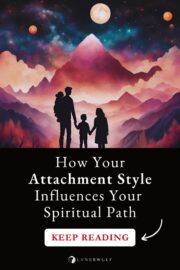
 $3
$3
I do believe i have the avoidant and anxious attachment style.
Although i do not really recognize myself in the lists about avoidant, anxious and disorganized when it comes to spirituality.
Funnely enough… Last december just a few days before Christmas i bought myself the Attachment book by Amir Levine.
Unfortunately i havent been able to read that much with my half working zombie brains. What i have been reading in the first few pages had already quite the impact on me. I cant wait to get my brain function back so i can keep reading and learn more about it.
I was anxiously attached from my mother and avoidant from my father, definetely double insecure attachment style. By Grace I was given the opportunity to learn and develop an earned secure attachment within the relationship with my securely attached, loving and patient husband of nearly 40 years. It was quite a ride and I am beyond grateful. It took me more than 2 decades to work through all of my “stuff” and it is an ongoing process. Convinced that insecure attachment happens in relations and is best healed in relations. Thank you for shedding light on the connection to spirituality. As you say how could one’s experience with one’s first attachment as a baby not influence the relationship to self and thus the connection to the divine. Awareness about it is fundamental.
Thank you for this beautiful share Susanne. I’m so glad you found that earned secure attachment eventually 💜
I am definitely full-on avoidant. But here’s the thing : my life is so incredibly beautiful without people in it that I don’t want to change it. I’m not interested in working towards a secure attachrment style. Loner wolf! And yes I studied psychology and am well acquainted with the work of Bowlby and Klein. Even though my avoidant attachment style came about through continued neglect as a child (thanks mom!) I wouldn’t change it now for the world.
You may be called on by people who need your wisdom and guidance… some day.
All that to say, while you may feel your ‘life is incredibly beautiful without people in it’, you may come to a point where you will change.
Fair enough Gaby – though, Tony has a good point here. :)
i definitely am disorganized. my heart was broken by an avoidant. thing was, he was one of the very few people to enter my life cause he was so aggressive in his approach.
i mostly put people off by giving them the creeps. i worked in a place where people were openly angry, it fit better with me than where i work now. the work i do sucks & is the lowest you can go. people come up to me & routinely ask if i’m okay or just plain state that ‘i seem not to like it here.’ it’s rough. i know i come off as majorly depressed & maybe i am but i don’t want to look that way. it’s embarrassing.
i’m sure there are other people as depressed if not worse than me that seem ‘happy.’
a big part of it is doing a bad job. i’m a really intelligent person but life has been the worst & i’ve gotten stuck doing the most menial, unfortunate kind of work. the thing is, the other people who do the job i do are at least interesting where the people with ‘good jobs’ are not good people. they just aren’t. they are bullies.
of course i am attracted to someone at work, there’s always someone. every time he sees me i’m sweating, trying to do my bad job. it’s very difficult trying to help yourself when you’re in such a situation.
Thank you for your vulnerability 🐺
In my late teens and early twenties, I had an anxious attachment style as an adoptee. After experiencing more emotional abuse and abandonment trauma in my late twenties and early thirties, I now have more of a disorganized attachment style, except spiritually, which is somehow the only realm of relationships where I still have a secure attachment style.
I think it’s beautiful that, despite having a disorganized attachment style with other humans, you have a secure attachment style with your spirituality – it must feel like a safe haven for you in this chaotic world 💜
Great article! I read a book about attachments styles some time ago and I found out that I have mostly avoidant, as far as I can remember it mentioned that secure attachments could be developed with a secure partner but didn’t say anything about friends or professionals and about earned secure attachments, also I didn’t thought it could influence spirituality but it makes sense. So this inspire me to do more research on it and maybe I’ll read that book again! Thank you.
Thank you for sharing this Roberto! Definitely worth revisiting :)
Thank you for this article Aletheia. Disorganised attachment describes me so well & it is good to have some of my questions about why I am like I am answered and to get guidance on steps to take to start helping myself. With gratitude & thanks💙
I’m glad this piece helped you Jen 💜
I don’t agree that this psychological theory invented by one person attempting to analyze all human beings in this way has anything to do with spirituality or spiritual growth and I’m actually very turned off by this connection as ALL are wounded in some way by their primary care givers and ALL readers are at a certain level of consciousness which will make them embrace these new definitions of themselves as part of their ego personality, or believe that they are the way they are because of this so-called attachment style which they had not heard of before and now feel ‘enlightened’ by, but actually this type of thing sets people apart and makes them feel different from one another. And that’s not spiritual.
Hi Laara. Many psychological theories are created by one person at the start, and then undergo extensive research, studying, and testing. Attachment style theory is no different and is quite well-known, tested, and validated. We all have different degrees of each attachment style as well, so it’s not like someone is 100% securely attached versus another who may not be (even securely attached folks have certain degrees of woundedness). With that said, if you don’t like the premise, you’re free to let it go and find something else that helps you out. Any theory, label, or idea, in the hands of the wrong person, can be used as a form of ego validation or fixation. Even the idea of being a “spiritual” person is another form of ego label.
Aletheia in this reply I see you are living up to your name the girl who loves truth. Thank you for the article and the information provided. Peace and love Michael
I think I am a mixture of Anxious and Disorganized attachment styles. I am not sure if that’s even possible. However, 6 months ago my emotionally immature narcisstic mother passed away. I am now on a journey to find my true authentic self. Is that considered earned secure attachment?
It’s normal to have varying degrees of each style, so that sounds entirely possible, Stephanie. I encourage you to look up ‘earned secure attachment’ to read more about the signs. But generally, it takes many years to develop earned secure attachment –for me, it took over a decade (although the amount of time varies for each person) and I still have avoidant attachment style with certain people. Thank you for being here 💜
I laughed in validation when you said this; “I took an attachment style test the other day (I wish I remembered where)”. I so appreciate your humility and humanity as a spiritual guide around not being perfect! I mainly have an earned secure attachment, but lately (especially in female relationships) my disorganized attachment tendencies have been coming out strongly. I’m finding healing and guidance in a local Wiccan community, as I remember myself and continue to heal from these deep wounds in the presence of other women. Your website and wise, soothing guidance is also a primary source of support for me on my spiritual path, and I thank you. Sending healing blessings to you all, wherever you are on your path 💖 🙏🏼
It’s beautiful that you’re finding healing and guidance in your local Wiccan community! Thanks for your kind words, Courtney 💜